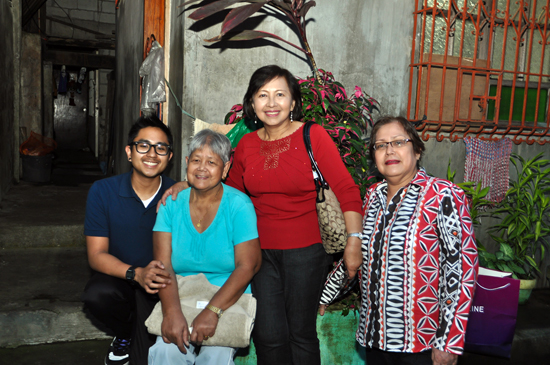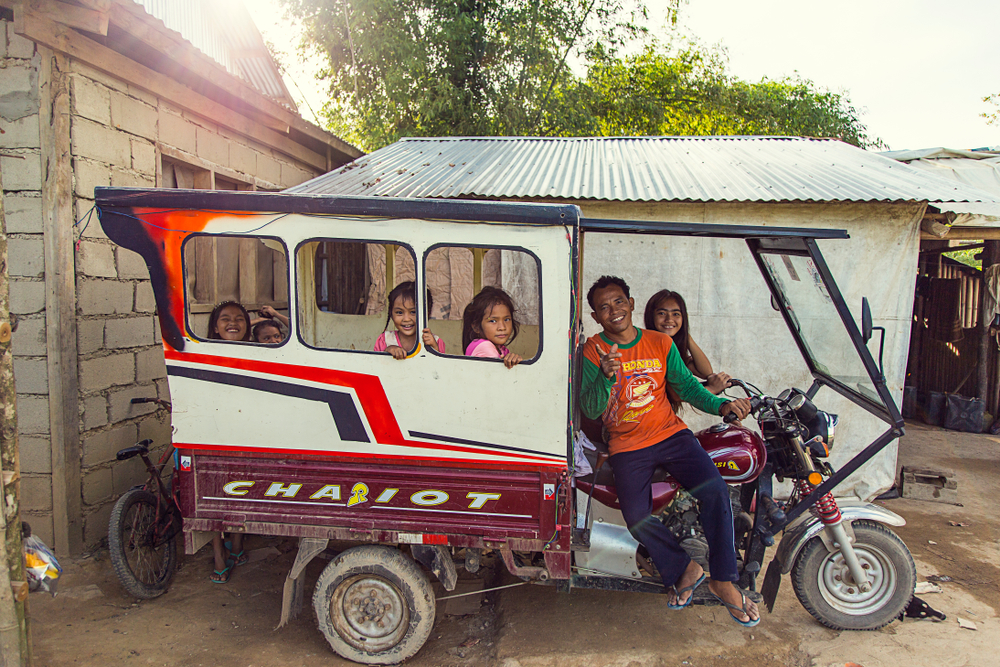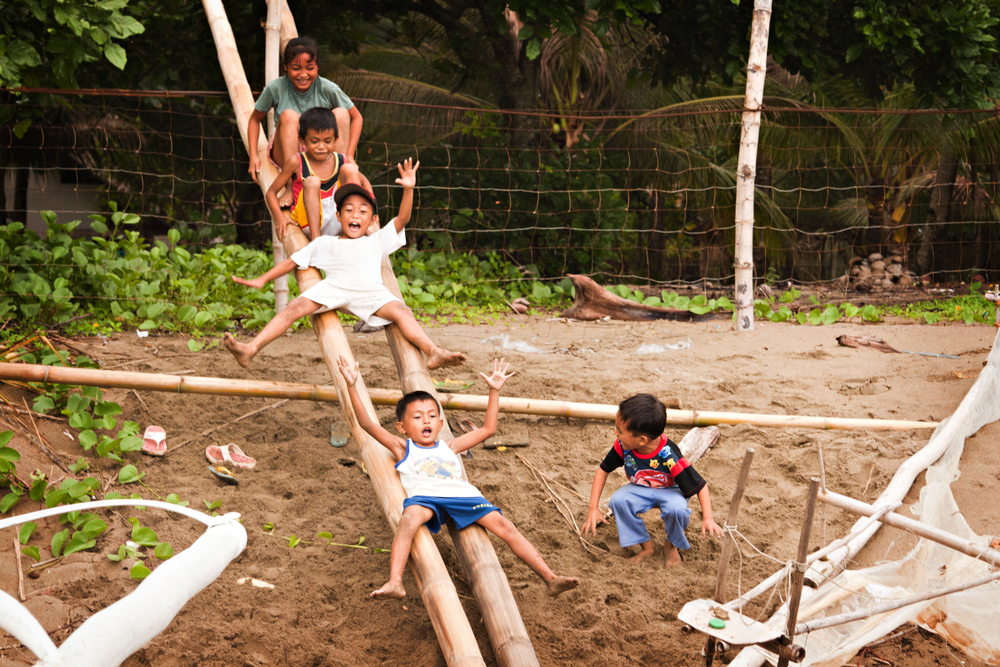Life Stages: Family and Parenting
Family Structure
The family is the central institution in Philippine society, and family ties are vitally important. Extended families are common, especially among the more traditional and the middle classes. These are generally large, with parents, unmarried children, married sons and their families, uncles, aunts, cousins, grandparents, godparents, and other close relatives living together in the same house or adjacent houses.
Most Philippine families have two or three children, while the number is typically higher among rural or extended households. The average family size in the country is eight: three or four adults and four or more children. Nuclear families consisting of a father, mother, and their children are more common among the upper class and the urban Philippine elite.
Children are considered very important in marriage and family life in the Philippines. Of all family members, young children get the most attention and affection in Philippine homes. The culture believes that children bring and receive most of the family’s good fortunes. Filipinos also believe that the number of children in a household reflects the extent of God’s blessing and favor on that particular family. On the negative side, traditional beliefs about infertility often burden childless parents with a social stigma.
In the Philippines, both parents have equal rights and duties toward the child. Fathers are mainly responsible for instilling discipline in their children, teaching them to respect and obey their elders, providing them good education, and punishing children for any misconduct. Philippine mothers play the role of a friend within the household, fulfilling the basic needs of the children and displaying tolerance toward their behavior. Mothers spend more time with children, give them advice and emotional support, and are their chief disciplinarians on social and personal habits. At times, when children are disobedient, mischievous, or walang hiya (shameless/insensitive), mothers may also reprimand or spank them.
Familial Roles
Philippine society greatly values family hierarchy. All elders, regardless of their gender, receive great respect from the younger members of the household. In most Philippine families, the father is the head and primary breadwinner of the household and makes the major family decisions.
A Philippine mother is regarded as ilaw ng tahanan (light of the home) and she commands the most respect. She is typically involved in administering domestic activities, imparting responsibilities to the younger women in the family, organizing the finances of household, and taking care of children. In extended families, however, all men and women tend to have equality in decision-making, contributing to the family income (with many Filipino women also involved in commercial activities), and managing other family affairs.
Typical family life in the Philippines consists of men going to work, women performing domestic chores, children going to school, and all family members getting together for the day’s meals. Pre-adolescent Philippine children (up to ten years of age) typically help in housework like cleaning or washing, take orders from their parents, and cooperate with their elder brothers and sisters.
The primary duties of adolescents (both boys and girls) in the Philippines are to love and support younger siblings; maintain the family’s unity; contribute to the household income; respect the country’s customs, culture, heritage, authorities, and laws; and participate in social activities. Unmarried adolescents mostly live in their parents’ homes until marriage. Philippine daughters in particular are expected to help their mothers with household matters, stay with their parents and grandparents (sometimes even after marriage), and take care of them.
Filipinos are known for their support of their families throughout their lives. While parents earnestly perform their duties when children are young, adult children take good care of their aged or widowed parents. The main role of grandparents in any Philippine family is to help out with childcare, especially when women are engaged in economic activities outside of the household. Grandparents typically live with their children and grandchildren.
Family Time
During their leisure time, Philippine families typically participate in cultural events such as festivals, music concerts, and/or religious services. Most households have televisions and radios, and these are the primary means of entertainment for the entire family.
Many Filipinos are involved in sporting events and games such as chess, checkers, cards, mahjongg (a Chinese table game played with 144 tiles), golf, volleyball, basketball, mountaineering, yachting, diving, and sailing. Other family recreational activities include attending cockfights and horse races, picnicking at beaches and resorts, going to movies, folk dancing, and socializing with relatives, friends, or neighbors.
Filipinos commonly share their breakfast and dinner together with their families. The dining table is considered an ideal place for discussions with family members and friends.
Copyright © 1993—2025 World Trade Press. All rights reserved.

 Philippines
Philippines 

